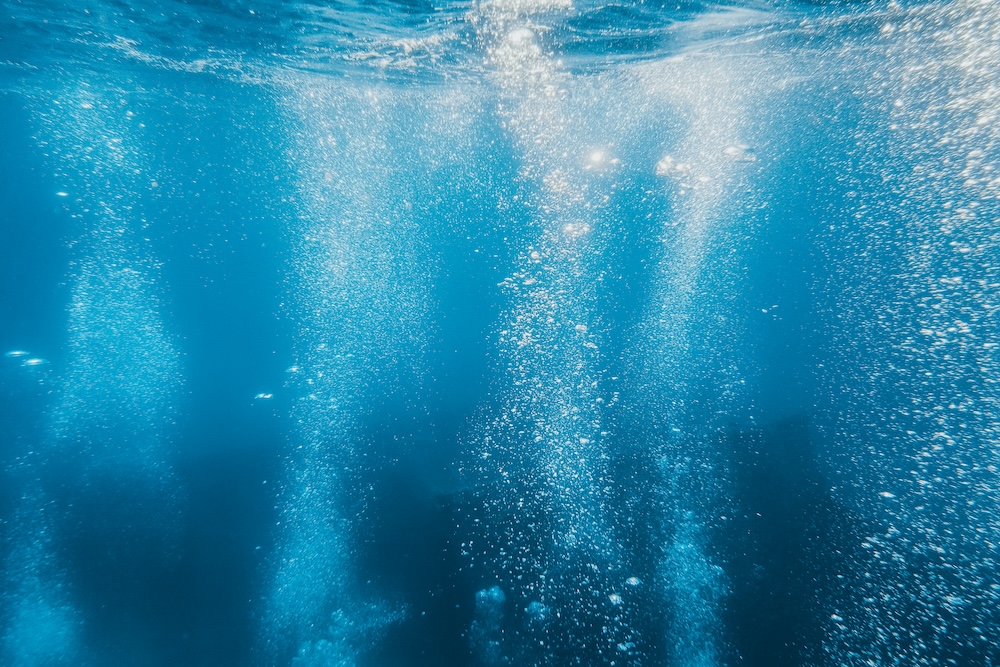The ocean is not a silent world. It never has been.
Long before human technology reached beneath the waves, the sea pulsed with sound. The rhythmic clicking of shrimp. The long moans of whales. The crackling of coral reefs alive with life. Together, these natural voices formed what scientists call the ocean soundscape — a living, breathing signature of ecosystem health.
But now, that sound is fading. And what’s replacing it is not peace — it’s emptiness.
What Is an Ocean Soundscape?
Unlike on land, where sight dominates how life interacts, sound is the language of the ocean. In the deep sea where light disappears entirely, or even in shallow, murky coastal zones, animals rely on acoustic cues to survive.
Fish sing. Coral reefs snap and pop with life. Marine mammals like dolphins and whales use sound to find food, navigate, and communicate across vast distances. The ocean soundscape is essentially the combined acoustic fingerprint of everything alive underwater.
It’s how we can listen to ecosystems without needing to see them — and lately, what we’re hearing is silence.
The Sound of a Dying Ecosystem
In thriving coral reefs, the water crackles with constant life — from fish movement to invertebrate activity. But when coral dies due to bleaching, pollution, or warming seas, that sound vanishes.
Scientists have used underwater microphones, or hydrophones, to capture this change. What once sounded like a bustling city now resembles an abandoned ghost town. Just like a healthy forest is filled with birdsong, a healthy reef or open ocean is filled with its own symphony.
When that sound fades, it means life is disappearing — whether from death, migration, or reproductive collapse.
Bioacoustics: The Ocean’s Early Warning System
One of the most powerful tools marine scientists have is passive acoustic monitoring. Instead of relying on visual observation, researchers drop hydrophones across the ocean and simply listen.
This allows them to:
- Monitor whale migrations
- Track fish population trends
- Detect ecosystem disturbances from afar
- Measure recovery in marine reserves
In essence, sound has become the heartbeat monitor for the sea.
But just like a flatline on a hospital monitor, silence means something’s very wrong.
Ocean Silence Is Spreading
Recent studies show a disturbing trend: the shrinking of soundscapes across major marine environments.
- In coral reefs, bleaching has silenced once-thriving areas
- In open oceans, whales are vocalizing less due to stress, hunger, or low reproductive activity
- In fishing zones, overexploitation has reduced population densities, lowering the collective noise output of the ecosystem
These aren’t isolated events. They’re part of a global pattern of acoustic decline, driven by warming waters, industrial activity, and biodiversity loss.
Not Just Quiet — Drowned Out
Adding to the problem is ocean noise pollution. While biological sound is fading, human-made noise is rising.
Massive cargo ships, seismic surveys, naval sonar, and offshore drilling all emit disruptive sounds that travel for miles. These industrial noises:
- Interfere with animal communication
- Cause stress and disorientation
- Mask critical survival sounds like predator alerts or mating calls
In some zones, the combination of silence from nature and noise from industry creates a disorienting, fractured acoustic environment that’s neither natural nor survivable for many species.
Why Ocean Silence Affects Us All
It’s tempting to think this is just a marine issue. But the health of ocean soundscapes connects to everything:
- Fisheries decline when fish can’t find spawning grounds or mates due to disrupted sound patterns
- Whale populations shrink when acoustic communication breaks down over time
- Coastal communities suffer when degraded ecosystems no longer provide food or storm protection
On a deeper level, we also lose something cultural, emotional, and even spiritual. Humans are wired to respond to rhythm, song, and the sounds of nature. The loss of those sounds is a disconnection from the world that made us.
Listening Is a Form of Protection
Scientists and conservationists are ramping up efforts to preserve and monitor acoustic ecosystems. Key steps include:
- Installing hydrophones in more regions to build global acoustic baselines
- Creating Quiet Marine Reserves where ship traffic is restricted
- Enforcing limits on seismic surveys and industrial sonar
- Reducing carbon emissions to protect biodiversity from climate-driven collapse
These efforts are as much about protecting life as they are about protecting the ability to hear life.
How You Can Help Protect Ocean Soundscapes
You don’t need to be a scientist to make a difference. Here’s how to get involved:
- Support organizations funding marine acoustic research
- Choose sustainable seafood or reduce seafood consumption entirely
- Advocate for clean energy policies that protect ocean habitats
- Share awareness: silence in the ocean isn’t serenity — it’s warning
Final Thoughts: Listening Before It’s Too Late
We tend to think of environmental collapse as something we’ll see — dead zones, bleached reefs, stranded whales.
But sometimes, collapse comes in a whisper.
When the ocean goes quiet, it’s not healing. It’s emptying.
The soundscape is our best chance to hear the trouble before it’s visible — a kind of underwater language that tells the truth even when nothing appears to be wrong. If we ignore it, we miss our chance to intervene. But if we listen, really listen, we can still act while there’s something left to save.
The ocean is speaking, even in its silence.
Are we listening?








